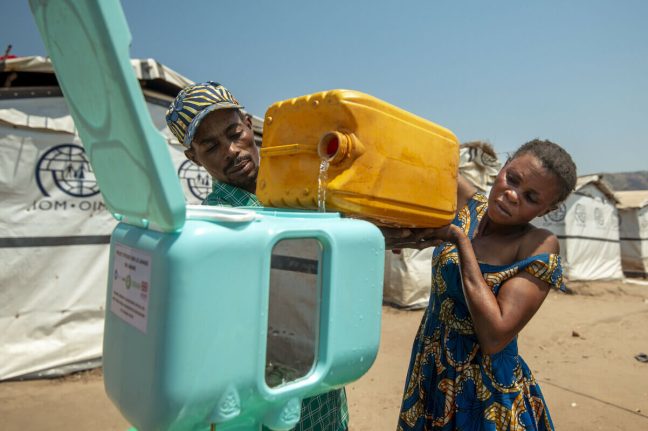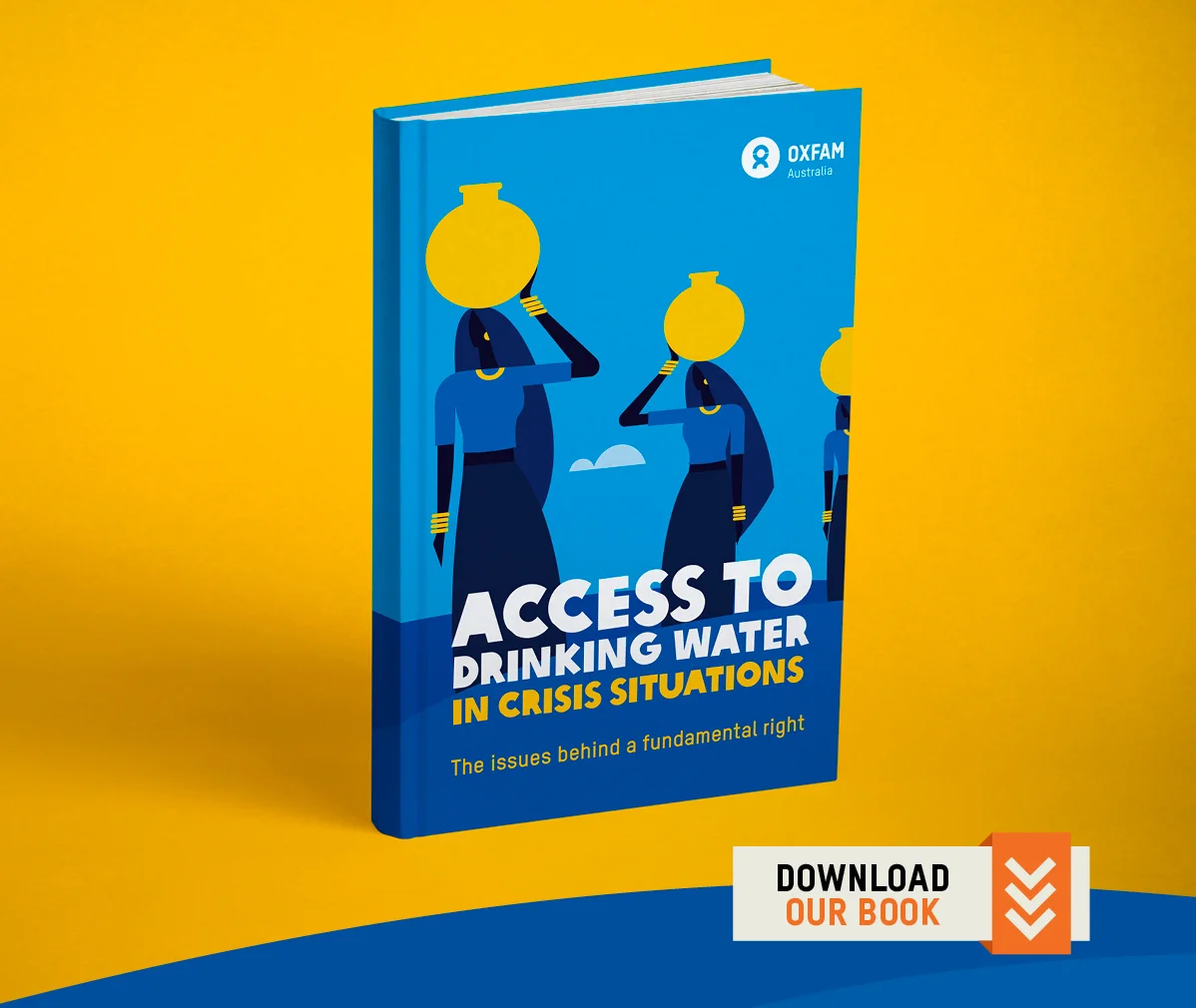Water and sanitation
It’s all too easy to forget what a miracle water is. With a water supply on tap, food can grow, and people can thrive. Water is Life.
Yet access to clean water and safe sanitation – flushing toilets, and other forms of sewage treatment – is one of the biggest health issues around the world. Almost 900 million people in the world do not have access to clean water – or one in eight people. (WHO/UNICEF)
Unclean water, poor sanitation and unsafe hygiene practices have claimed more lives over the past century than any other cause – and this is continuing in many developing countries – making this one of the world’s most urgent health issues.
As part of our humanitarian response work, Oxfam is widely recognized as a leading organization helping people meet their needs for clean water, safe sanitation and hygiene advice (collectively known as WASH).
Our water engineers are renowned for their speed and efficiency, providing large-scale water supplies and disease-preventing sanitation facilities to millions of vulnerable people in the world, even in the most challenging environments such as after the 2023 Türkiye-Syria earthquake and the 2022 Pakistan floods.
Working alongside partners on the ground, we are committed to developing innovative, long-term and cost-effective solutions that are tailored to each community’s unique needs and can reduce levels of poverty and disease.
In emergencies, many more lives are put at risk by inadequate water supplies and poor sanitation. It’s estimated that, at the bare minimum, a person needs 15 litres of water per day for drinking, cooking, and washing. This makes providing clean water a massive task requiring the sort of specialist skills and equipment Oxfam has.
The costs of unsafe water |
| 2.2 billion people do not have access to clean water at home. |
| 2.3 billion people lack access to basic sanitation services, such as toilets. |
| Worldwide, over 80% of all wastewater returns to the environment without being treated. |
| Every day, more than 800 children under five years of age die from diarrhea caused by dirty water. |
| 700 million people worldwide could be displaced by intense water scarcity by 2030. |

WHAT WE DO:
Emergency responseFast action can stop an emergency turning into a crisis. Our water engineers are renowned for their speed and efficiency, providing large-scale water supplies and disease-preventing sanitation facilities – even in the most difficult circumstances such as the Haiti earthquake and the Pakistan floods. In each situation, we look for the most effective and efficient way to provide water – setting up delivery systems that pipe or truck water in from the nearest water source for distribution via water tanks, pipes and tap stands. We always work with local people; taking into account local needs and practices. We ensure that facilities are designed to enable people – particularly women and children – to maintain their dignity and stay safe. We also provide health and hygiene advice to ensure water and sanitation facilities are used properly to help prevent the spread of disease. |
As part of longer-term developmentWater, sanitation and hygiene approaches underpin many of our poverty-fighting development projects. We work with local communities to provide long-term, cost-effective solutions that can reduce levels of poverty and disease. Providing safe water can improve general health and reduce the pressure on often-limited health care resources. Introducing simple irrigation schemes can kick-start farming, improve local diets and give people the chance to make a living. By taking an integrated approach to health and incorporating components from the fields of WASH, we can provide simple and effective solutions that can be implemented by local communities themselves. Providing clean water, latrines and hygiene advice at schools can even increase attendance, reducing days lost through illness and raising educational performance. This can be particularly significant for girls. Schools play an important role in helping to change attitudes towards hygiene within their wider community. Have a deeper look into our WASH projects here: |

Access to drinking water in crisis situations eBook
Clean water is a fundamental human right. Yet 1 in 8 people on our planet don’t have access to this vital resource. Our eBook dives into why access to clean water is one of the world’s most urgent health issues – as well as its impacts on food security, educational opportunities for women and girls.



